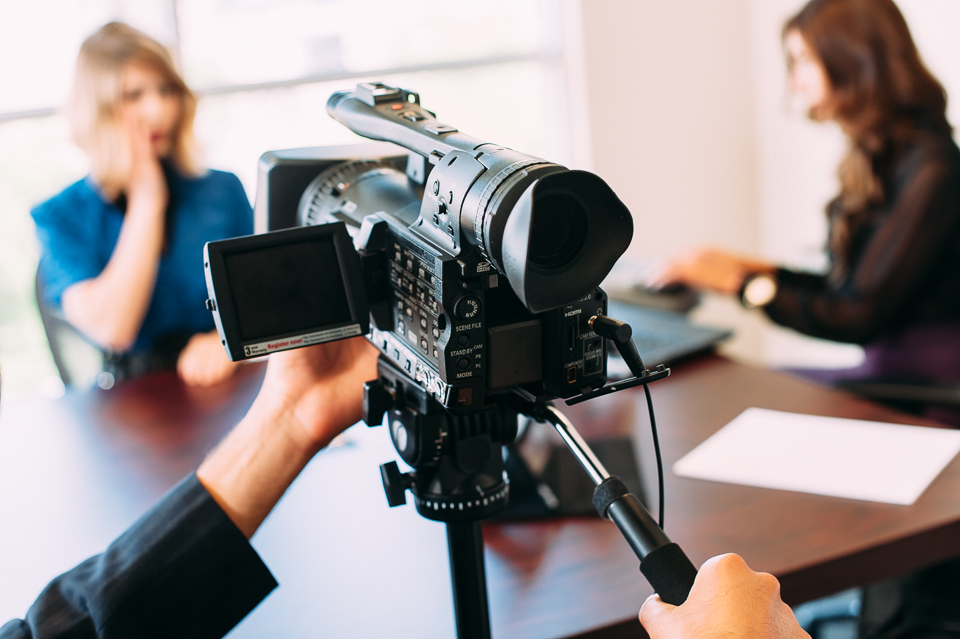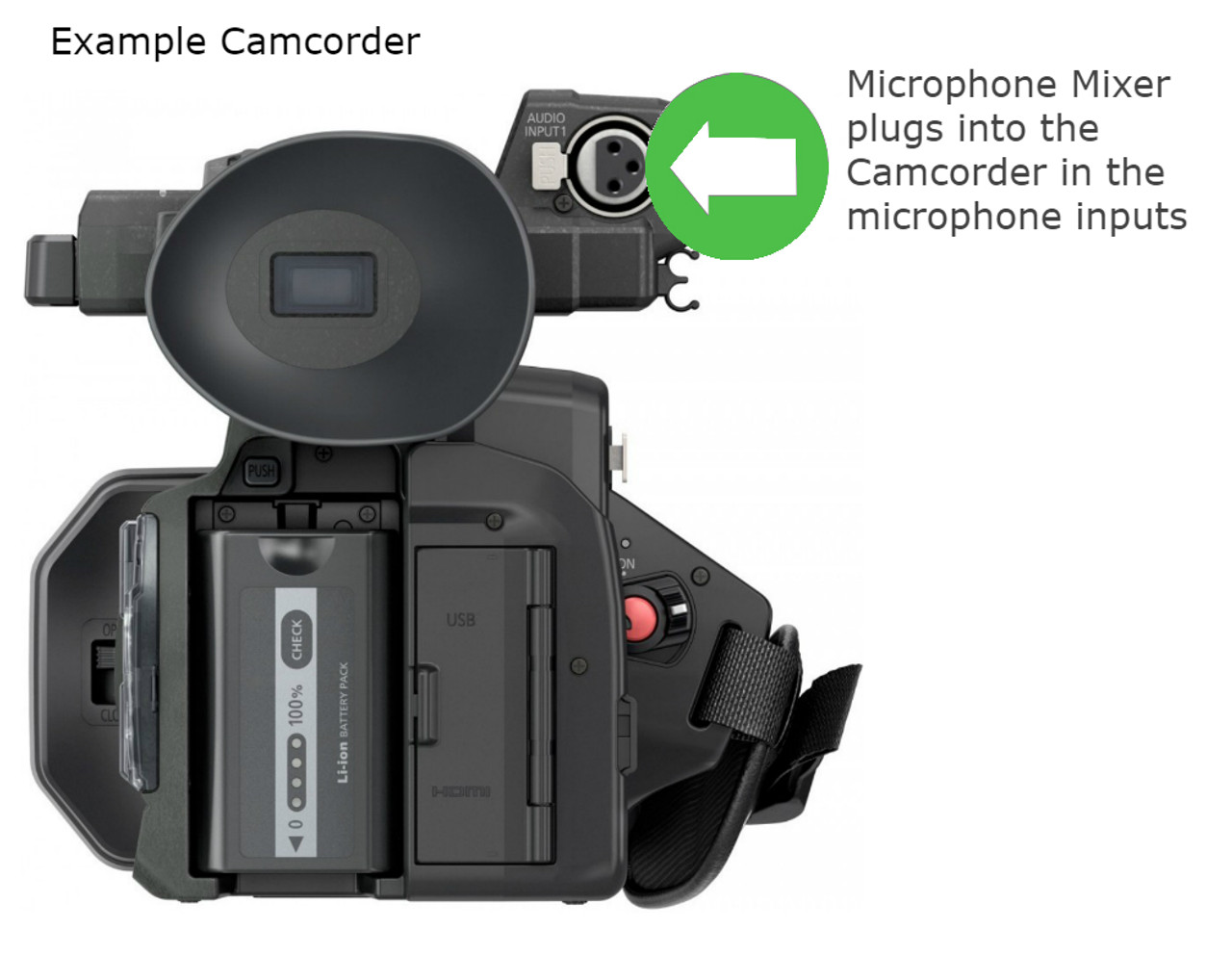The Importance of Lawful Video Clip Depositions in Modern Legal Solutions: What You Need to Know
Lawful video depositions have come to be necessary in today's legal landscape. They give a multidimensional view of witness testimonies that typical transcripts simply can not match. By catching both verbal and non-verbal interaction, these depositions improve the overall understanding of a witness's reputation. Nonetheless, the efficiency of video depositions hinges on various variables, including conformity with legal requirements and ideal methods (legal video depositions). Checking out these elements discloses their true value in contemporary lawful services
What Are Lawful Video Depositions?
Legal video clip depositions offer as an essential tool in the litigation procedure. They entail recording witness statements in a video format, capturing both non-verbal and verbal interaction. This approach enables attorneys to document the demeanor, expressions, and reactions of witnesses, offering a richer context for the statement. Commonly conducted in a controlled atmosphere, these depositions are led by lawyers that ask inquiries while a stenotype reporter documents the discussion. The resulting video clip can be critical for test prep work, as it enables lawyers to analyze the integrity of witnesses and fine-tune their techniques. Furthermore, lawful video depositions can be made use of in different legal contexts, varying from civil disputes to criminal instances. The aesthetic and auditory elements of video depositions improve the discussion of proof, making it an important element in the modern lawful landscape. Overall, they add considerably to the performance and performance of legal process.

Benefits of Video Clip Depositions Over Typical Techniques
Video depositions provide countless benefits contrasted to traditional techniques of taking witness statements. One considerable advantage is the capability to record both audio and aesthetic elements, providing a much more complete document of the witness's statements. This double format enhances clarity and enables attorneys to reference certain subtleties during trial prep work. In addition, video clip depositions assist in remote participation, making it easier for witnesses who might be not available for in-person appearances as a result of geographical restrictions or health and wellness issues.Moreover, video depositions can speed up the overall deposition procedure, decreasing the moment and expenses associated with traveling and logistics. They additionally improve availability, as taped depositions can be quickly shared among lawful teams and referenced any time. This comfort contributes to far better situation administration and preparation. On the whole, video depositions stand for a modern, reliable method to collecting witness testimonies, lining up with the evolving requirements of the lawful occupation.
The Duty of Body Language and Tone in Testimonies

In legal video depositions, body movement and tone play essential roles in communicating a witness's reputation and dependability. Nonverbal hints can supply insights right into a witness's mood, influencing just how their testament is regarded. Understanding the influence of these aspects is essential for attorneys and jurors alike when reviewing the dependability of a testament.
Nonverbal Interaction Insights
While verbal communication is typically stressed in lawful testimonies, nonverbal hints such as body language and tone play a crucial duty in conveying trustworthiness and feeling. Onlookers of depositions might note that a witness's pose, motions, and facial expressions can significantly influence understandings of dependability. For circumstances, constant eye contact may signal confidence, while preventing look can recommend deceit or discomfort. In a similar way, the intonation-- its volume, pitch, and pace-- can impart feelings of sincerity or uncertainty. Attorneys should be in harmony with these nonverbal signals, as they often give critical context that matches talked words. Comprehending these nuances can improve the effectiveness of depositions and influence the outcome of legal proceedings.
Emotional Tone Influence
The psychological tone communicated during lawful statements substantially affects exactly how a witness is perceived. Body language, singing inflections, and faces play important roles in forming the narrative of a testament. A witness displaying self-confidence via consistent eye contact and a calm tone can infuse a sense of dependability and involvement. On the other hand, indicators of stress and anxiety, such as fidgeting or an unsteady voice, may lead to skepticism concerning their account. The subtleties of psychological expression can influence the interpretation of facts, making it necessary for attorneys to identify these cues. In video clip depositions, the visual and acoustic parts integrate, stressing the significance of emotional tone in communicating genuineness and truthfulness within the lawful process.
Integrity and Dependability
An essential factor in establishing integrity and reliability during statements hinges on the witness's body language and intonation. Observers frequently count on non-verbal signs-- such as eye call, stance, and gestures-- to assess a witness's genuineness. For example, a witness who preserves eye call and presents open body language may be perceived as more straightforward and reliable than one that avoids eye get in touch with or appears blocked. In addition, tone of voice plays a vital duty; a constant, tranquil tone can enhance the integrity of the testimony, while fluctuations in pitch or quantity might elevate uncertainties. Inevitably, the combination of body language and singing tone substantially influences how a witness's statements are received and translated in a lawful context.
Best Practices for Performing Video Clip Depositions
Conducting video clip depositions calls for mindful preparation and implementation to ensure a efficient and clear presentation of statement. It is crucial to choose a quiet, well-lit place to lessen distractions and secure optimum video clip high quality. The equipment ought to be evaluated ahead of time, consisting of video cameras, microphones, and illumination, to avoid technological issues throughout the deposition.Next, parties included have to examine why not check here the style and procedures in advance, ensuring that everybody comprehends their roles. The deponent should be oriented on the procedure, including just how to react clearly and concisely.Additionally, preserving an expert demeanor throughout the session is essential. This consists of refraining from talking over one an additional and validating that all concerns are directed appropriately. Lastly, it is essential to record the deposition in a style that enables for easy playback and testimonial, protecting the stability of the testament for future usage.
Legal Considerations and Conformity Issues
Exactly how do lawful considerations and conformity problems influence the efficiency of video clip depositions? Lawful specialists have to navigate an intricate landscape of regulations, ensuring that video depositions stick to administrative regulations and criteria. Conformity with regulations concerning personal privacy, consent, and taping approaches is important. As an example, getting specific approval from all events involved is required to stay clear of lawful repercussions.Additionally, the admissibility of video clip evidence in court can pivot on conformity with step-by-step requirements. Guaranteeing that the devices utilized meets technical criteria is additionally vital, as low quality can threaten the deposition's reliability.Moreover, lawyers should understand any kind of particular state legislations that govern video clip depositions, as these can differ substantially. Failing to address these considerations can not only jeopardize the honesty of the deposition but additionally influence the overall case approach, eventually affecting the customer's lawful results.
Just How Video Clip Depositions Influence Jury Perception
While video depositions can function as effective devices in legal process, their impact on jury understanding is significant. The aesthetic and auditory elements of video recordings provide jurors with an extra complete understanding of witness disposition, reputation, and psychological reactions. This multimedia strategy can improve the jurors' ability to assess the reliability of statement compared to standard text-based transcripts.Moreover, video clip depositions enable jurors to observe body movement, intonation, and faces, all of which can affect their interpretation of the witness's declarations. The visibility of a witness on screen can humanize them, promoting compassion and connection, which might guide jurors' viewpoints. Conversely, a witness that appears undependable or incredibly elusive on video clip might result in adverse understandings that affect a court's choice. Eventually, the vibrant nature of video clip depositions plays a vital role fit exactly how jurors translate proof and reach their judgments.
The Future of Video Depositions in Legal Practice
As innovations in technology remain to reshape the lawful landscape, the future of video clip depositions is poised for substantial development. Innovations such as man-made intelligence, online fact, and boosted video clip conferencing devices are expected to enhance the deposition process and enhance availability. Lawful specialists might make use of AI-driven analytics to analyze witness reliability and situation stamina extra effectively.Moreover, the integration of virtual truth can allow juries to experience immersive simulations of depositions, supplying much deeper context and understanding. Additionally, the fad towards remote depositions is most likely to persist, offering better flexibility for clients and lawyers alike.As remote work becomes significantly normalized, video depositions will likely become basic method, lowering expenses and time restrictions connected with typical approaches. Generally, these technical innovations guarantee to boost the efficiency, performance, and access of video depositions in Read More Here lawful technique, ultimately changing exactly how lawyers plan for trial.
Regularly Asked Concerns
Just How Much Do Legal Video Depositions Typically Price?

Can Video Depositions Be Made Use Of in Any Type Of Type of Case?
Video depositions can be utilized in various kinds of instances, including civil, criminal, and family regulation. Their adaptability enables lawyers to existing witness testimonies effectively, adjusting to the certain requirements of various lawful situations.
What Tools Is Required for a Video Clip Deposition?
To carry out a video deposition, vital tools consists of a high-grade electronic camera, microphone, lights, and a trustworthy recording gadget. Additionally, a computer with editing and enhancing software program might be necessary for post-production and formatting the last video clip.
The length of time Does a Typical Video Clip Deposition Last?
A normal video deposition lasts in between 2 to 4 hours, depending upon the complexity of the case and the variety of inquiries presented. Prolonged sessions may occur, but breaks are usually incorporated for participant comfort.

Are Video Clip Depositions Admissible in Court?
Video depositions are normally acceptable in court, supplied they stick to lawful requirements and guidelines of evidence. Their use enhances clarity and protects witness testimony, aiding in the judicial process throughout hearings and tests. Lawful video depositions have actually ended up being crucial in today's lawful have a peek here landscape. Furthermore, lawful video clip depositions can be made use of in numerous lawful contexts, ranging from civil disputes to criminal cases. Additionally, video clip depositions help with remote engagement, making it much easier for witnesses who may be unavailable for in-person looks due to geographical constraints or wellness issues.Moreover, video depositions can quicken the total deposition process, reducing the time and costs linked with travel and logistics. Making sure that the devices used fulfills technical standards is also crucial, as poor high quality can weaken the deposition's reliability.Moreover, attorneys need to be mindful of any particular state regulations that regulate video depositions, as these can vary considerably. In addition, the trend toward remote depositions is likely to persist, providing better versatility for clients and attorneys alike.As remote job ends up being increasingly stabilized, video clip depositions will likely end up being common practice, decreasing costs and time restrictions associated with typical approaches.